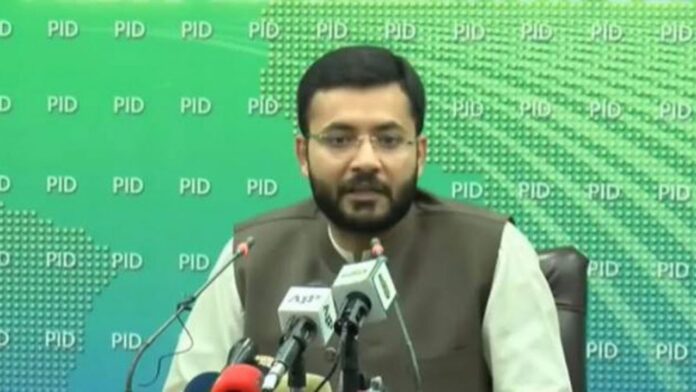FAISALABAD: State Minister for Information and Broadcasting Farrukh Habib has said that the government is trying to control the inflation on a sustainable basis and in this connection, long-term policies are being implemented to enhance the export with diversification.
Talking to the media persons after attending an event on Saturday, the minister said that the government is focusing on new and traditional markets so as to give a quantum jump to the exports.
He said the government is trying its level best to minimise the impact of global inflation on poor people by trimming down duties and other taxes. He said that although the coronavirus pandemic wreaked havoc on the economy of the entire world including Pakistan due to rise in prices of various commodities especially oil products, yet Pakistan’s economy has witnessed growth due to prudent policies of the government.
He said that petroleum prices suddenly jumped from $35 to $85 per barrel and it is impossible for the economy of the third world country to bear the increase. He said the rise in oil prices has affected all developed countries, therefore, the government has to take steps for rationalising the price gap and some increase is made in the prices of oil products.
However, the government reduced the sales tax on petrol in addition to decreasing petroleum levy to save people from inflation crunch at maximum extent, he added.
He said the price of coal has increased from $50 per tonne to $250 per tonne while the price of edible oil has risen from $500 per tonne to $1200-1300 per tonne in the international market. At the same time, the charges for container shipping were also increased from $2,000 to $10,000, he added.
He said the talks are also underway with the owners of ghee mills to bring down the prices of ghee for which the government is also ready for appropriate reduction in taxes and levies. He said the government would issue Ehsas cards to 12 million poor families in the form of ration cards from November this year and the card holder would be entitled to get direct subsidy on flour, sugar, pulses and ghee.
Similarly, farmers are being provided Kisan cards at a fast pace so that they could increase their food production and meet their agricultural needs by getting direct subsidies, he said and added that from November this, health cards would also be issued to every family in Punjab so that card holder family could get quality up to Rs1 million annually from the doctor or hospital of their own choice.
He said that pro-industry policies of the government have also increased production in addition to creating new job opportunities. The cotton crop has also increased from 6 million bales to 9 million bales which would be increased further in the coming years.
He said the government is providing sugar at subsidised rate while the new crushing season would also help further trim down its prices to a reasonable extent.
About the increase in power tariff, he said the government was forced to increase electricity prices as previous governments had set such a trap for the people where we had to pay electricity price whether we purchase it or not. The ill-conceived policies of previous rulers not only increased circular debt but also ruined the economic stability by looting and plundering national wealth through fake accounts and money laundering, he added.




